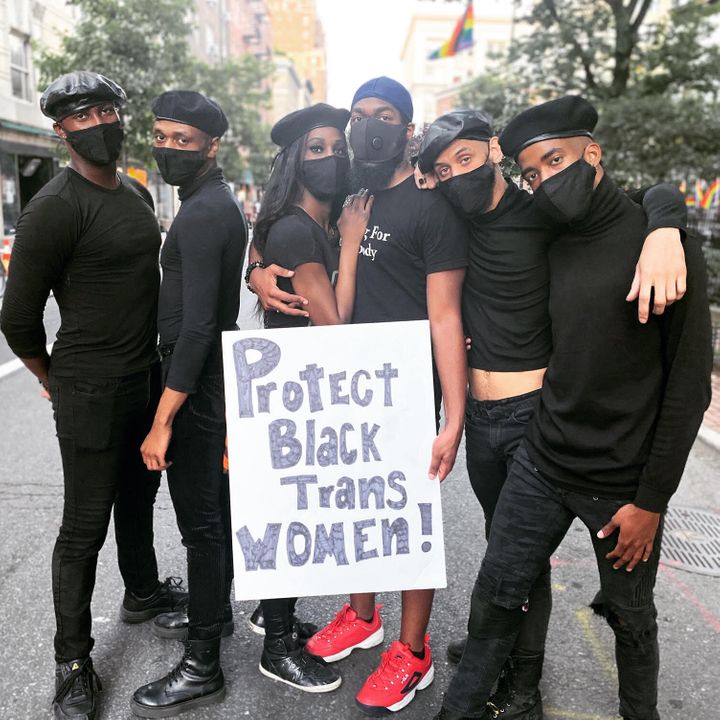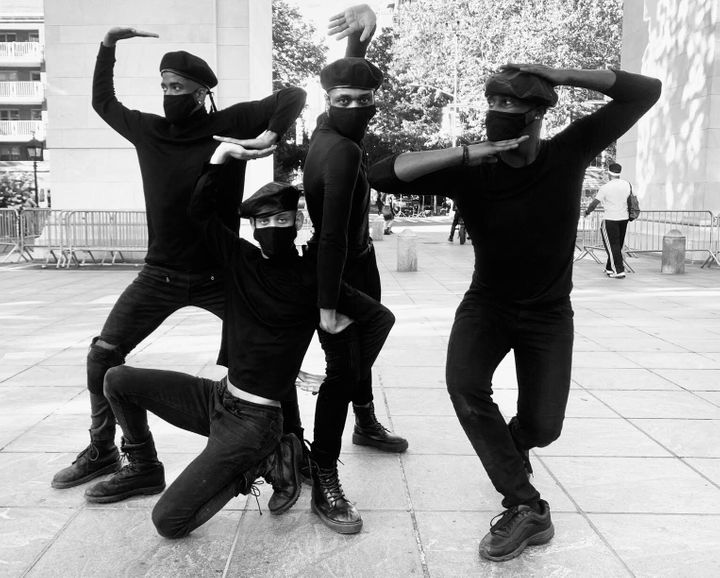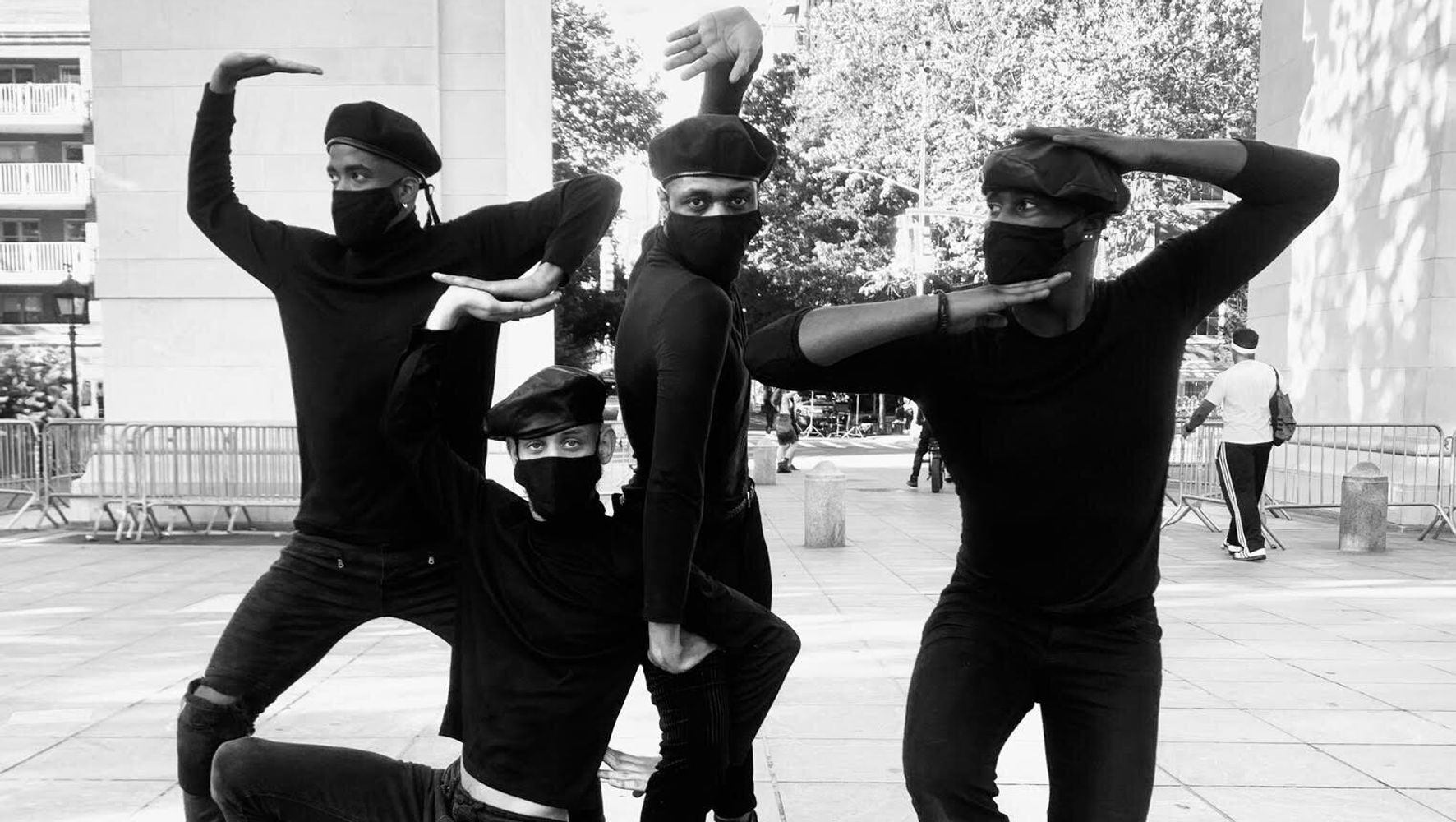[ad_1]
As spring became summer, Kemar Jewel knew he wanted to acknowledge Pride Month in a way that felt true to 2020’s pandemic-marred, community-minded vibe.
Like many artists before him, Jewel found inspiration through personal anguish. The New York dancer and choreographer says he was verbally and physically accosted by a white police officer while attending a Black Lives Matter protest in May, after which he felt compelled to “turn my anger into art.”
“I think people need to be a part of a revolution the best way they know how, and the way I know how is through movement,” the 27-year-old told HuffPost. “I’ve always been an activist, and being able to continue that work through my art is powerful to me.”
Soon, Jewel had assembled a troupe of queer Black dancers ― Harun “Hayden” Jones, Daphne Winter Midnyght, Antonio Mugler, Otis Pena and O’Shae Sibley ― to create a stunning performance video, “Vogue 4 #BlackLivesMatter.”
Viewable above, the clip finds Jewel and his masked ensemble strutting, shimmying and striking poses while traversing New York’s Greenwich Village to the tune of Byrell the Great’s “Bubble Drip.”

The video’s anti-police brutality message is made clear throughout. Though “Bubble Drip” was released in 2016, it features the line “I can’t breathe” ― which also happen to be Minneapolis security guard George Floyd’s final words before his death at the hands of police in May. At one point, a dancer performs an acrobatic move atop the hood of a police vehicle, while another dips to the ground as a row of real-life cops looks on.
In some respects, “Vogue 4 #BlackLivesMatter” is as driven by nostalgia as it is hopeful for the future. Voguing began bubbling up into the mainstream amid the Harlem ballroom scene of the 1970s and ’80s. But the origins of the now-legendary dance style can be traced back to before the 1969 Stonewall uprising, cited by historians as the symbolic start of the LGBTQ rights movement.
Current members of the ballroom community have been a visible presence at several of the recent protests across the country, serving as a reminder to participants that Black queer and transgender folks are essential to the fight against racial inequality.
These days, of course, their mood is more solemn than celebratory, with many experiencing a collective sense of grief for Black lives lost.
“When we say ‘Black lives matter,’ that includes Black queer, trans and gender-nonconforming people as well,” Jewel said. “These individuals should be celebrated for living their authentic lives in a world that usually only celebrates them for 30 days in June.”

The release of “Vogue 4 #BlackLivesMatter” comes at a trying time for Jewel, who has choreographed videos for Todrick Hall as well as musicals like “Marry Me a Little.” The COVID-19 pandemic has kept theaters and other performance spaces shuttered since March, with most not expected to resume business until 2021.
Born in Jamaica and raised in Philadelphia, Jewel has long felt an allyship with the transgender community. At 16, he was kicked out of his home for being gay. After finding himself homeless, he found solace among a group of Black transgender women, who “directly and indirectly” raised him as their own.
Naming LGBTQ icons Marsha P. Johnson and Crystal LaBeija as personal heroes, Jewel says he’s recently come to serve as a father figure for a young trans woman, and hopes to one day collaborate with Beyoncé. Until then, he’ll keep finding creative ways to offer forms of “joyful protest” like “Vogue 4 #BlackLivesMatter.”
“As a Black man living in America, I’m constantly in fear of police brutality and racism,” he said. “By living my life unapologetically, I’m doing what they hate the most. So I choose to do that.”
Calling all HuffPost superfans!
Sign up for membership to become a founding member and help shape HuffPost’s next chapter
[ad_2]
Source link

